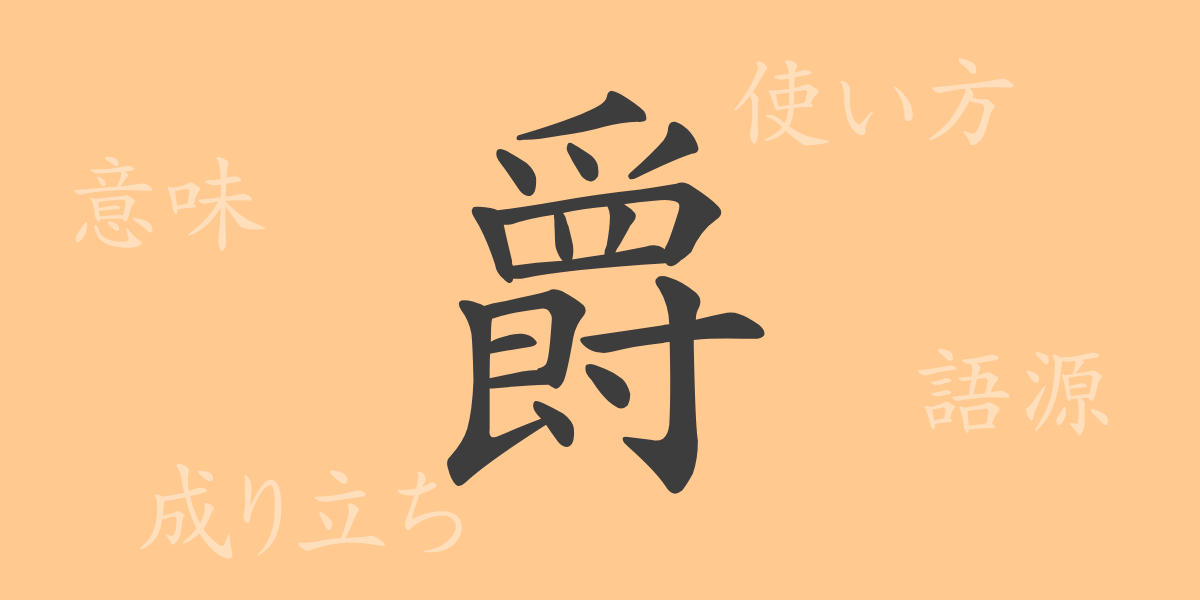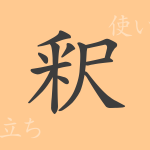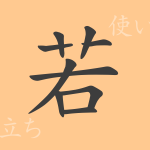The depth of Japanese character culture is profound, and among them, the 常用漢字(じょうようかんじ) used in everyday life are closely related to the daily lives of Japanese people. However, some kanji are less commonly used, and one such character is 「爵(しゃく)」. In this article, we focus on this somewhat mysterious kanji 「爵(しゃく)」, exploring its origin, meaning, usage, and the idioms and expressions that feature it in the Japanese language.
Origin of 爵(しゃく) (Etymology)
The kanji 「爵(しゃく)」 originates from ancient China and was initially a pictograph representing a high-ranking official or noble title. This character is believed to depict a wine vessel called 「爵盞(しゃくさん)」, which played a significant role in ancient rituals and banquets. Over time, 「爵(しゃく)」 became a symbol of authority and status and was introduced to Japan.
Meaning and Usage of 爵(しゃく)
In modern Japanese, 「爵(しゃく)」 primarily denotes noble titles or honors. For example, it is used in titles of members of the House of Peers or certain honors received. However, it is not commonly used in everyday life, and its usage is limited to specific contexts.
Readings, Stroke Count, and Radical of 爵(しゃく)
The kanji 「爵(しゃく)」 has unique readings and a distinctive structure in Japanese.
- Readings: The on’yomi (音読み) is 「シャク(しゃく)」, and there are no kun’yomi (訓読み).
- Stroke count: 17 strokes.
- Radical: 爪(つめ), which is the radical.
Idioms, Phrases, and Proverbs Using 爵(しゃく)
Idioms and phrases containing 「爵(しゃく)」 are quite limited due to its specific meaning. For example, 「爵位(しゃくい)」 means a noble rank or title. 「受爵(じゅしゃく)」 refers to receiving a noble title, and 「断爵(だんしゃく)」 means renouncing that title. These expressions are often found in historical, literary, or specific legal contexts.
Conclusion on 爵(しゃく)
Although the kanji 「爵(しゃく)」 has a limited usage in modern Japanese society, it has played an important role in Japan’s history and culture. Understanding this character can provide deeper insights into Japan’s noble culture and the historical context of the language. We hope that this exploration has allowed readers to appreciate the rich history and meaning of the kanji 「爵(しゃく)」.

























